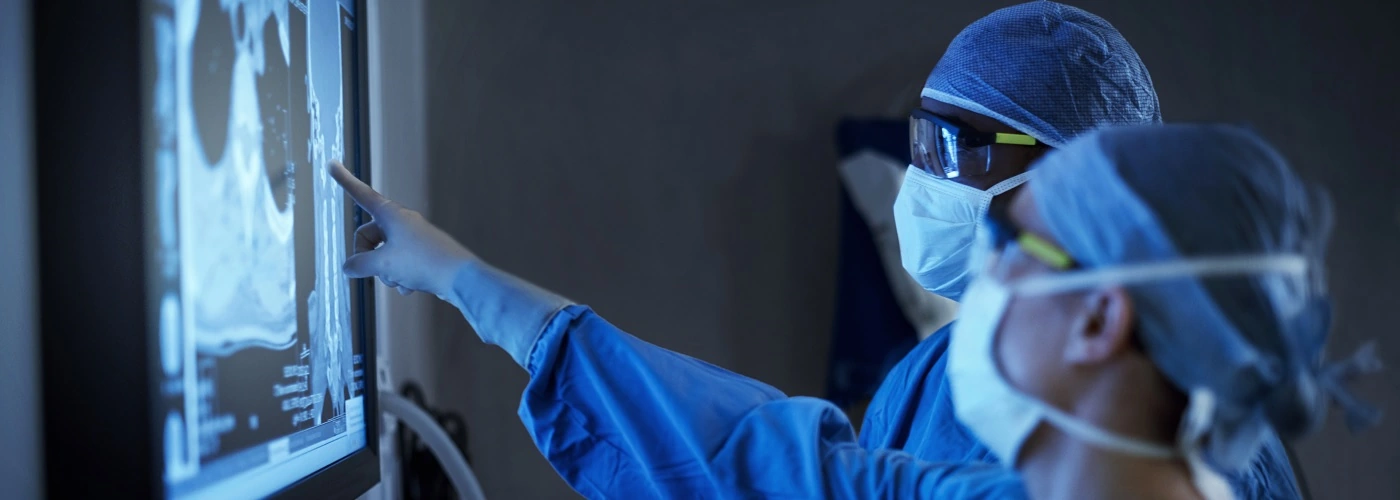
Neurosurgery is a medical specialty that is concerned with the diagnosis, treatment, rehabilitation, and prevention of conditions affecting any part of the nervous system, including the brain, spine, spinal cord, peripheral nervous system, and cerebrovascular system.
Surgeons who specialise in neurosurgery are referred to as neurosurgeons. They provide both surgical and non-surgical treatment, depending on the disease and condition of the patient. Common neurological conditions treated by neurosurgeons include head and facial pain, brain tumours, spine tumours, degenerative spine conditions and traumatic head injuries, along with more complex disorders like cerebral, aneurysms and arteriovenous malformations.
Gleneagles Hospital Penang is home to highly skilled and experienced neurosurgeons capable of performing complex procedures, treating various conditions/disorders, as well as providing comprehensive care for our patients. They employ open and minimally invasive surgical techniques using the latest technologies available, such as microscopes, endoscopes, and image guided surgery (IGS) for the best possible outcome of patients.
Our neurosurgeons at Gleneagles Hospital Penang are also assisted by a dedicated team comprised of other specialists in various fields, nurses, dietitians, and physiotherapists to provide comprehensive care for all the patients needs.
In addition to surgery, our surgeons are also involved in stereotactic radiosurgery (SRS), pain intervention using radiofrequency (RF), and rehabilitation of post-operative patients.
The services offered at Gleneagles Hospital Penang include but are not limited to:
Neurosurgery is often needed for the following conditions:
Typical diagnostic tests include:
If you experience persistent or worsening symptoms related to the brain, spine, or nervous system, it’s important to consult a neurosurgeon. Conditions like chronic back pain, head trauma, or neurological disorders may require specialised surgical evaluation and treatment to prevent complications and improve outcomes.
In your first consultation with a neurosurgeon, they will review your medical history and symptoms before conducting a physical exam focused on neurological function. Depending on your condition, they may order diagnostic tests like MRIs or CT scans to create a personalised surgical plan.
Successful and effective treatment is first preceded by accurate diagnosis. It is imperative to properly diagnose a condition in order to determine an efficacious treatment plan for our patients.
Gleneagles Hospital Penang is one of the leaders in the field of neurosurgery, with state-of-the-art facilities, including a 3T MRI suite, 640-Slice CT scanner, and various others.
The 3 Tesla (3T) MRI is an advanced magnetic resonance imaging (MRI) scanner that enables a more accurate diagnosis due to its quicker, more detailed scans, as well as clearer images.
Our Imaging Department is home to an advanced 640-slice Toshiba Aquilion One CT Scanner, one of the most revolutionary and the world’s first dynamic volume CT scanner. Apart from routine examination, the scanner also performs CT angiography (CTA) to help physicians evaluate the arteries and assess their function.
These revolutionary facilities assist our neurosurgeons in their diagnosis, and treatment of various conditions.
Meet the best neurologists at Gleneagles Hospital Penang. Each is committed to providing expert care and advanced treatment for neurological conditions.
Source: https://gleneagles.com.my/medical-specialties/neurosurgery


Wait a minute

Wait a minute